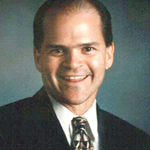VT Can Help Stroke Patients
Stroke patients should consider visiting a Behavioral Optometrist as part of their rehab. It may sound unusual, but it’s effective.
Dr. Rick Graebe, a Behavioral Optometrist in Versailles, uses the specialized treatment of Vision Therapy to help stroke patients.
Why is Vision Therapy successful? Strokes affect the brain, and 70% of the brain is involved in the vision process, Dr Graebe says.
Stroke patients may suffer from the following:
- Eye tracking problems that affect reading
- Reduced visual-spatial judgment that affects driving and balance
- Visual field defects in which patients lose part of their field of vision.
Dr. Graebe routinely treats severe stroke patients who have been recommended for rehab.
Others may show symptoms but not realize they have suffered a minor stroke.
Older adults in particular may notice problems with driving and their balance but receive clean bills of health after routine exams.
Patients who visit Dr. Graebe and learn there is treatment for their vision problems often express relief.
“Patients say, ‘Thank heavens. I thought I was going crazy.
“I knew something was wrong, but the doctors said I was OK,’” Dr. Graebe said.
Vision Therapy works because the treatment involves not only the eyes but the body and the brain.
For stroke patients, Dr. Graebe uses special lenses and yoked prisms that are placed in front of each eye and help with peripheral vision and orientation.
The treatment can improve balance and restore judgment with visual-spatial issues.
“The brain is amazing,” Dr. Graebe said. “Give it half an opportunity to learn and it’ll figure it out.”
These exercises help generate new pathways in the brain.
There are two key breakthroughs in the past few years linked with brain research – neuroplasticity, (the idea that the brain can learn at any age) and neurogenesis, (new nerve cells can form, an idea nobody believed 15 years ago.)
Therefore, old dogs can learn new tricks.
Because of these advances, Dr. Graebe routinely treats patients in their 70s.
Said Dr. Graebe: “It’s refreshing when patients learn that their problems can be fixed. That’s the exciting part for me.”

